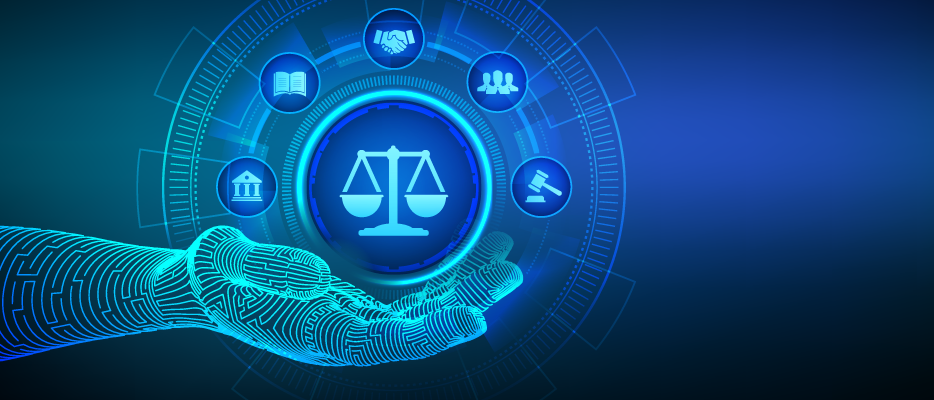Introduction
The legal industry, traditionally considered conservative and resistant to change, has witnessed a remarkable transformation in recent years, thanks to the relentless advance of Artificial Intelligence (AI). AI technologies are streamlining processes, enhancing decision-making, and driving efficiency in legal practice. In this blog post, we will explore the latest AI trends that are reshaping the legal landscape, delving into real-world examples, potential benefits, challenges, and ethical considerations.
1. Legal Research and Predictive Analytics
AI-powered legal research tools have become indispensable for legal professionals. Companies like ROSS Intelligence and LexisNexis are at the forefront of this trend. AI can scan vast legal databases, analyze case law, and provide relevant information much faster than human researchers. For instance, ROSS uses natural language processing (NLP) to understand legal queries and extract pertinent information. Predictive analytics also help lawyers forecast case outcomes based on historical data, enabling them to make more informed decisions.
Benefits: Enhanced efficiency, cost savings, and improved accuracy in legal research.
Challenges: Ethical concerns about reliance on AI, and the risk of bias in training data.
2. Contract Management and Review
Contract management and review processes have traditionally been time-consuming and error-prone. AI-driven contract analysis tools, such as Kira and ThoughtRiver, can analyze and extract key provisions from contracts, ensuring compliance and reducing the risk of errors. This not only saves time but also reduces legal exposure and helps legal departments manage large volumes of contracts more efficiently.
Benefits: Improved efficiency, reduced risk, and cost savings in contract management.
Challenges: Ensuring the accuracy of AI contract analysis and addressing potential bias in contract language.
3. E-Discovery
E-discovery is a crucial aspect of modern legal practice, particularly in litigation. AI, especially through technology-assisted review (TAR), helps legal professionals sift through massive volumes of electronically stored information (ESI) to identify relevant evidence. Companies like Relativity and Everlaw offer AI-powered tools for e-discovery, making the process faster and more accurate.
Benefits: Reduced costs, faster e-discovery, and improved accuracy in document review.
Challenges: Ensuring the defensibility of AI-assisted e-discovery processes in court.
4. Legal Chatbots and Virtual Assistants
Chatbots and virtual assistants like DoNotPay are becoming increasingly common in the legal field. These AI-powered systems can answer legal questions, guide users through legal processes, and even help draft simple legal documents. For example, DoNotPay assists users in drafting cease and desist letters, parking ticket appeals, and more.
Benefits: Improved access to legal information, cost-effective solutions for simple legal tasks, and 24/7 availability.
Challenges: Limitations in handling complex legal issues and ensuring the accuracy of advice.
5. Regulatory Compliance and Risk Management
AI is also playing a significant role in regulatory compliance and risk management. Companies are using AI to monitor and analyze compliance with ever-evolving regulations. AI systems can scan documents and communications to identify potential compliance breaches, reducing the risk of costly legal actions and fines.
Benefits: Enhanced risk management, reduced legal exposure, and improved regulatory compliance.
Challenges: Balancing automation with human oversight and addressing privacy concerns.
Ethical Implications of AI in Law
The adoption of AI in the legal industry raises important ethical considerations. One major concern is the potential for bias in AI algorithms. If AI systems are trained on biased or incomplete data, they can perpetuate and even exacerbate existing biases in the legal system. Legal professionals must carefully monitor and audit AI tools to mitigate these risks.
Additionally, the ethical responsibility of legal professionals in overseeing AI systems and ensuring that they do not compromise legal ethics and client confidentiality is a crucial consideration.
Adapting to the Transformative Era
Legal professionals are adapting to this transformative era by embracing AI, but it's crucial to strike a balance between automation and human expertise. Training in AI technologies, ethics, and regulatory considerations is becoming increasingly important. Legal education programs are incorporating AI-related courses to prepare law students for the AI-driven legal landscape.
In conclusion, AI is revolutionizing the legal landscape by enhancing legal research, streamlining contract management, and improving e-discovery, among other aspects. While there are numerous benefits, legal professionals must be vigilant in addressing ethical concerns and ensuring that AI serves the interests of justice and the rule of law. The legal industry is undoubtedly in the midst of a digital transformation, and adapting to this transformative era is essential to its continued success and evolution.
